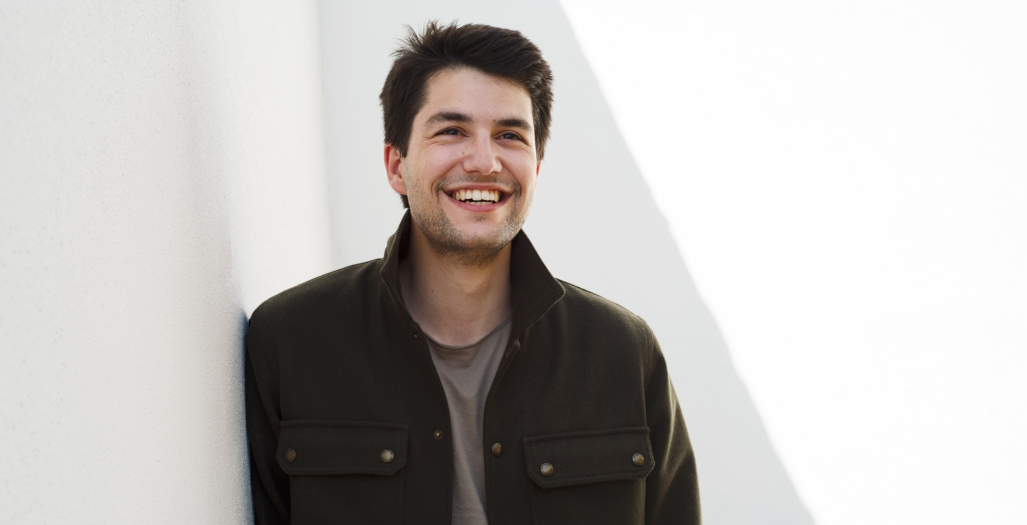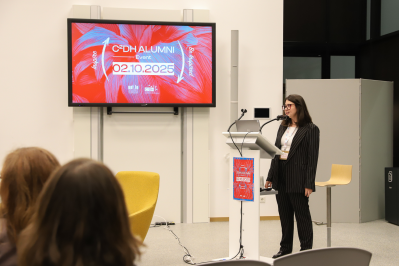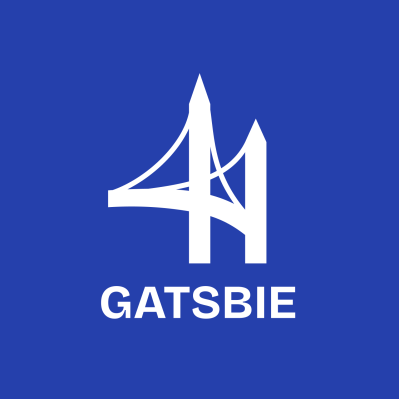News

Christos Floros and Monnet Social - Made in Europe
From a stable job for a big company to an entrepreneurial adventure with the aim to change how social media works: we spoke to our alumnus Christos Floros about his new project - Monnet Social.
You grew up between Greece, Luxembourg, and an international world — how has your upbringing influenced the way you see digital spaces and democracy?
It made it impossible for me to see the world in just one way. I grew up between cultures, between languages — and at the heart of the European project, in Luxembourg. It always felt normal to me that everyone should have a say, that all perspectives should be valued.
Sharing, listening, and learning from each other — that's what strengthens democracies. And above all, the right to exist with your complexity.
Why did you decide to leave your job and become an entrepreneur?
I’ve always been building things. I’ve never had a traditional career path. I was lucky to be trusted early on — to innovate, to experiment — whether on my own or within companies. But I think the crossroads we find ourselves in, socially and politically, left no real choice for someone like me. I can’t just sit and watch while our public spaces are built badly — by people who don’t understand the rules of the spaces they create.
Our democracies, our societies, are being dismantled in broad daylight — with our participation. There was never a question of whether I would do this. Only when. And I plan to give it my best shot — over and over again — until it works.
What makes Monnet different from other social media platforms?
Monnet gives the power back to the user. You control what you see, how much the algorithm intervenes, how close or far your content comes from. Privacy and user control aren’t features you opt into — they’re the default. Beyond the tech, the philosophy is different: we’re not trying to hijack your attention. We're trying to rebuild trust — at a time when trust is collapsing.
Why did you choose the name "Monnet" for the platform?
Mon net(work) social. It works!
You’re also planning to invest heavily in research on AI, public space, and freedom of speech. Can you tell us more about that side of Monnet?
Absolutely. We’re not just building another app. Long-term, we want to lead serious research on how AI and digital spaces can serve democracy — not destroy it. That means investing in algorithmic transparency, smarter moderation that protects speech but limits hate, and studying how to avoid the "AI slop" that's already degrading parts of the web. And I look forward to collaborating with the University of Luxembourg and our national institutions to make this a reality.
What stage is the project at today — and how can people get involved?
We’re live with early access signups. Future users can join us at Monnet.social. Our goal is to launch this summer. We’re still in discussions with investors and raising pre-seed capital — but we’re very encouraged. People understand what we’re building — and that the timing is right. We’re proudly building, early and ambitiously.
What do you like most — and least — about building a company from scratch?
What I love is how much I’m learning — and who I’m learning from. I don't find pitching scary. I find it exciting. You get to test your conviction and your thesis in front of people who will either back you — or sharpen your thinking. Every day, I’m learning. From lawyers, from investors, from our advisors, from my co-founder.
What I like the least is managing stress — and managing yourself. It’s scary. There are no guarantees. But honestly, it pales in comparison to the meaning you find when you wake up every day and know you're working on something that could actually make a difference.
You studied in the UK and Luxembourg. Why was it important for you to also pursue your studies at the University of Luxembourg?
Luxembourg is home. And if you want to build for Europe, you can’t just study abroad and never look back. The University of Luxembourg is brilliant: international, ambitious, and deeply invested in its future. I was lucky to have studied at Harvard, and at Pratt and Oxford Brookes. But I wanted to give a vote of confidence to our University — and you do that by trusting your education to it.
It mattered to me, personally and politically, that I had Uni.lu in my record. I don't regret making that decision for one second.
What skills or experiences from university have proven most valuable as you build Monnet?
Understanding how systems interact. My Master’s in Architecture wasn’t a regular MArch. It was a Master in Architecture, European Urbanisation and Globalisation. You don’t realize how much that matters — until you’re trying to build something that serves millions across different countries, cultures, and legal frameworks. I genuinely believe what makes me a better leader in building the future of digital spaces is that I am an architect. And I’m surrounded by architects — and their advice. It's our responsibility to design better spaces. Because we left the construction of our digital world to Silicon Valley engineers — people who knew how to build systems, but forgot about people.
They wanted to capture users. I want to build spaces — like an architect — that include everyone, and that work for everyone.
 5
5















No comment
Log in to post comment. Log in.